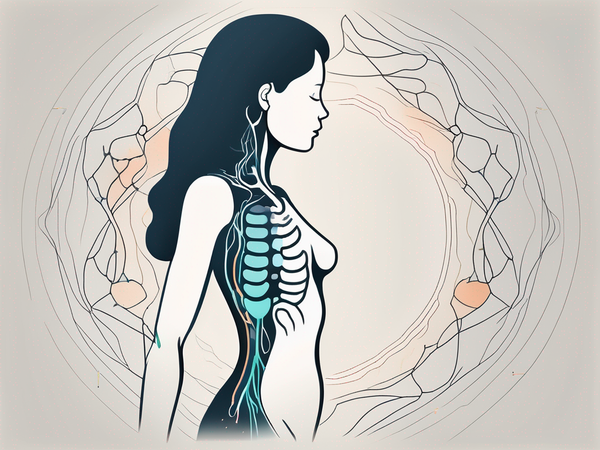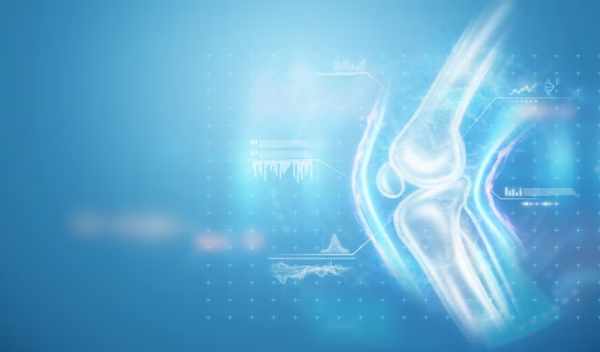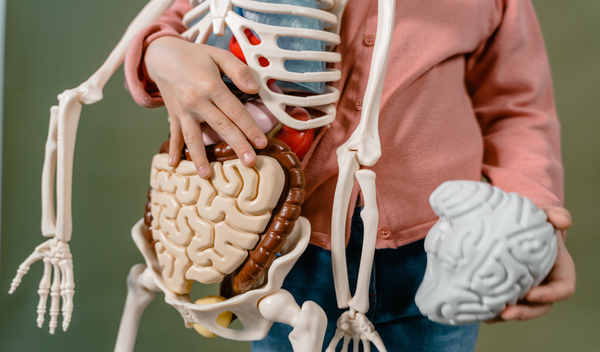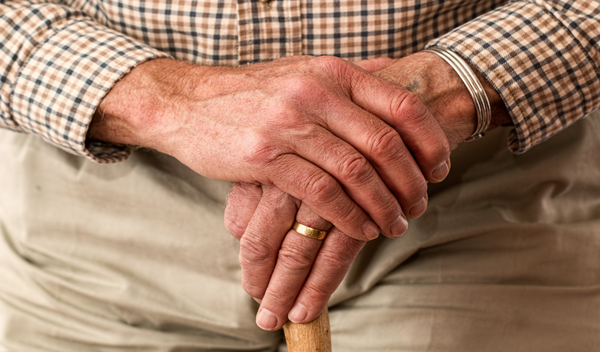When it comes to any disease, awareness is of prime importance as lack of it can lead to delayed diagnosis, a compromised quality of life and elevated healthcare costs. With that thought in mind, the World Autoimmune Arthritis Day has been commemorated since 2012 by the International Autoimmune Arthritis Movement (IAAM), on May 20th. The day is commemorated to raise global awareness about the autoimmune and autoinflammatory disease and increase the chances of its early diagnosis and treatment. But what is autoimmune arthritis, its signs and symptoms and how to prevent or treat this disease. Let’s find out.
What is Autoimmune Arthritis?
For those of you who are not aware of it, autoimmune arthritis is the name given to a group of different types of arthritis, where the person’s own immune system works against itself, giving rise to acute inflammation. The most common type of this arthritis is rheumatoid arthritis. There are close to about a 100 different types of arthritis, however, the most common types are rheumatoid arthritis and psoriatic arthritis. Let’s take a closer look at these few types of arthritis.
Rheumatoid arthritis: As stated already, this is perhaps the most common type of autoimmune arthritis, which usually results in pain and swelling in the joints, hands, feet, and wrists. As per a 2021 news report, approximately 1.3 crore people, i.e. one in 81.3 crore people in India suffers from rheumatoid arthritis. As per the World Health Organisation (WHO), close to 14 million people around the globe have rheumatoid arthritis.
Psoriatic arthritis: This type of autoimmune arthritis usually occurs among people with a skin condition called psoriasis. This skin condition is also an auto-immune disease that causes patchy, scaly, and rough areas to build up over the skin. There’s ample research study available that has shown that anywhere between 5 percent to 30 percent of people with psoriasis eventually develop psoriatic arthritis. In psoriatic arthritis, the affected area can be almost anywhere on the body where one has the scaly patch of the skin, including the fingers, knees, toes, spine, or more. According to stats, psoriatic arthritis can occur among 1-2 percent of the general population.
Other common types of arthritis include:
Juvenile arthritis (which causes, eye inflammation, joint pain, fevers, and rashes among children)
Palindromic rheumatism (a peculiar type of arthritis, which causes episodes or attacks of joint inflammation that then subsides as suddenly as it crops up)
Axial spondyloarthritis (which causes inflammation in pelvic joints and the spinal cord)
Reactive arthritis(inflammation in people who have some history with bacterial infections like Salmonella, Chlamydia, Shigella, and the like), to name a prominent few.
Signs and Symptoms of Autoimmune Arthritis
Given that a group of different types of arthritis, such as the ones mentioned above, together consist of autoimmune arthritis, the signs and symptoms may vary depending on the underlying type of arthritis. However, the most general symptoms of a majority of these diseases include:
-
Fever
-
Musculoskeletal stiffness
-
Swelling
-
Acute fatigue
-
Body ache
Which age group or individuals are more prone to get this?
Different types of arthritis affect different age groups of people like juvenile arthritis affects children with a weak immune system. However, given that each of the aforementioned arthritis are auto-immune in nature, it can happen to anyone whose immune system starts attacking itself leading to inflammation. Also, genetics and a family history of a specific condition plays a massive role in increasing a person’s susceptibility to that particular type of autoimmune arthritis. Certain environmental factors also play a vital role in increasing a person’s chances of developing autoimmune arthritis. These include obesity, erratic lifestyle, smoking, excessive alcohol consumption, excessive exposure to toxins such as drugs and other substances. Gender also plays a role in determining who gets this disease. For instance, women are 2-3 times more likely to develop rheumatoid arthritis than men.
Speaking of rheumatoid arthritis, the diagnostic criteria for it are a set of signs, symptoms and test results that your doctor looks for before diagnosing you with the same. The criteria are based on years of clinical experience. Having said that, not all rheumatoid arthritis patients have all the criteria. However, the diagnostic criteria for this condition include:
-
The prevalence of inflammatory arthritis in two or more large joints such as elbows, shoulders, knees, hips, to give a few examples.
-
The prevalence of inflammatory arthritis in smaller joints.
-
If a few vital levels like rheumatoid factor and CCP antibodies come positive in biomarker tests.
-
If the symptoms you are complaining for have persisted for more than 6 weeks
-
If your C-reactive protein levels or Sed rate (erythrocyte sedimentation rate) are elevated.
Factors That Can Prevent Autoimmune Arthritis
There are several factors that play an instrumental role in preventing auto-immune disease. Including immunity boosters into your routine will help the body strengthen its innate immunity. Immunity boosters are things that can aid in strengthening the immune system in a natural and seamless way from within. These include changing your diet if it is unhealthy, enhancing your sleep quality, doing regular physical activity, managing stress, drinking more water, and so on. But the best and most promising way to get healthy is by changing your diet. Start by including more and more foods to increase immunity in your diet.
These foods consist of essential nutrients that are important for strengthening your body’s immunity response. There are natural immunity boosters that include citrus fruits, green leafy vegetables, cruciferous vegetables, probiotics, seafood, lean meat, seeds and nuts, legumes and pulses, herbs and spices. The important nutrients that are known to improve immunity include, vitamin C, D, A, E, K, B-complex, magnesium, zinc, iron, potassium, and antioxidants.
However, if the fresh food you eat lacks nutrients necessary for good health, you can easily opt for immunity boosting supplements to plug the gaps in your diet. Including immunity and anti-inflammatory foods and supplements to your diet is one of the most effective tips to improve immunity. Having said that, it is always advisable to consult a doctor before adding any kind of supplement to your daily routine.
One can go in for a range of plant-based supplements by Wellbeing Nutrition to strengthen their immune system that will automatically lower the chances of developing auto-immune diseases. These include Daily Greens, Apple Cider Vinegar with 2x the Mother, Apple Cider Vinegar with Amla and Turmeric, Melts Multivitamins, Melts Natural Vitamin D3, Melts Vegan Vitamin B12, Melts Nano Iron, our very own Slow range of products embodying the delayed release technology like Slow Bone Support, Slow for Him, Slow for Her, Slow for Him 50+, Slow for Her 50+, Beauty Collagen and Pure Marine Collagen Peptides and the like.
The product we will highly recommend is definitely Slow for Bone Support. Wellbeing Nutrition Slow Bone Support capsules are Non-GMO and more bioavailable than traditional tablets/capsules/sugar-filled gummies and contain vitamins for strong bones and joints. Slow for Bone Support capsules helps the bones, by increasing joint flexibility, mobility, lubrication of joints, and the like. These nutrients support bone health and not strengthen bones like calcium & vitamin D do. The term refers to delayed release technology, which is designed to release slowly over 8 hours, in the absorptive, less sensitive areas of your gut to ensure maximum bioavailability of the vitamins and minerals. Slow Bone Support contains all the essential vitamins for bones in a capsule in capsule formula, which is designed to deliver key nutrients in daily serving. That is why this is one of the best supplements for bones.
Also, give Pure Marine Collagen and Beauty Marine Collagen peptides a try as the type 1 and III collagen peptides help to boost musculoskeletal strength. These supplements will help reduce the risk of bone and joint related problems or better manage them. So this World Autoimmune Arthritis Day, make Wellbeing Nutrition immunity boosters a part of your daily routine to better manage your symptoms and improve your overall health and wellbeing.
References:
van Vollenhoven RF. Sex differences in rheumatoid arthritis: more than meets the eye... BMC Med. 2009;7:12. Published 2009 Mar 30. doi:10.1186/1741-7015-7-12. (https://www.ncbi.nlm.nih.gov/pmc/articles/PMC2670321/)
How Common is Psoriatic Arthritis?, (https://psoriatic-arthritis.com/psa-basics/how-common-statistics)
Busse K, Liao W. Which Psoriasis Patients Develop Psoriatic Arthritis?. Psoriasis Forum. 2010;16(4):17-25..
(https://www.ncbi.nlm.nih.gov/pmc/articles/PMC4206220/)
Musculoskeletal conditions, (https://www.who.int/news-room/fact-sheets/detail/musculoskeletal-conditionshttps://www.who.int/news-room/fact-sheets/detail/musculoskeletal-conditions)
World Autoimmune & Autoinflammatory Arthritis Day, (https://www.asbmb.org/asbmb-today/science/051818/world-autoimmune-autoinflammatory-arthritis-day)
Rheumatoid Arthritis, Cleveland Clinic (https://my.clevelandclinic.org/health/diseases/4924-rheumatoid-arthritis)
Cassa Macedo A, Oliveira Vilela de Faria A, Ghezzi P. Boosting the Immune System, From Science to Myth: Analysis the Infosphere With Google. Front Med (Lausanne). 2019;6:165. Published 2019 Jul 25. doi:10.3389/fmed.2019.00165. (https://www.ncbi.nlm.nih.gov/pmc/articles/PMC6673706/)
Nutrition and Immunity, the Nutrition Source, Harvard T.H. Chan School of Public Health, (https://www.hsph.harvard.edu/nutritionsource/nutrition-and-immunity/)

























